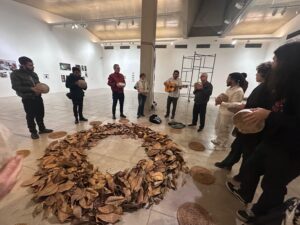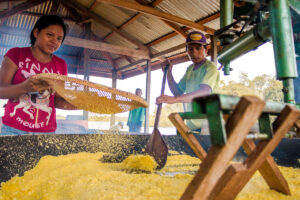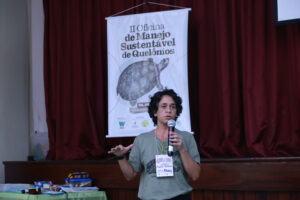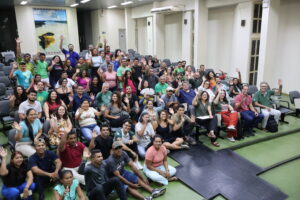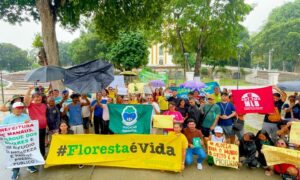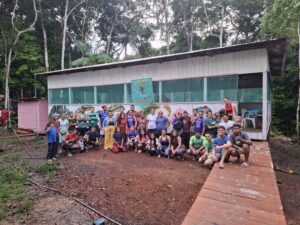Instituto Juruá was present for the assessment of the agreement, aiming the inclusion of new areas, support and training for the arapaima management
By Valdenor Magalhães Silva
Translated by Laiane Lessa
A fishing agreement is a pact between countries, regions or communities intended to regulate the exploitation of fishing resources in a specific area or river basin. These agreements often establish rules and guidelines for sustainable fishing, with the objective of preserving aquatic ecosystems and maintaining fish populations. The Amazon basin is home to thousands of fish, many of which are endemic, meaning they are not found anywhere else in the world. This biodiversity has sustained indigenous and riverside communities for thousands of years and plays a crucial role in natural cycles of the region, contributing to the health of aquatic and terrestrial ecosystems.
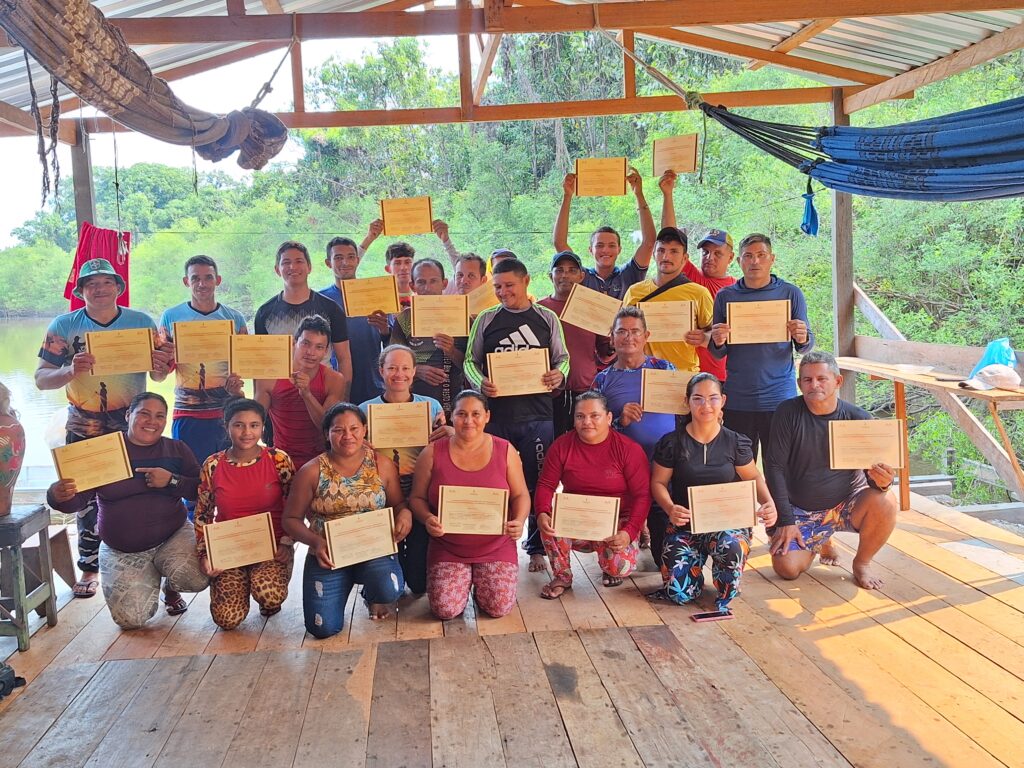
Historically, the first Fishing Agreement in the Amazon was informally planned at least 50 years ago, due to conflicts between riverside communities and the large commercial fishing fleets. However, it was only in 2011 that these agreements began to be formally recognized by the governmental institutions in the Amazon, strengthened by law through the Regulatory Instructions. These regulations aim to establish protected fishing zones, catching limits, gear regulations, closed seasons for reproduction of species and measures to combat illegal and predatory fishing. In addition, provisions were included for the conservation of aquatic habitats such as spawning and feeding areas, actions to mitigate impacts of pollution and environmental degradation.
In this context, Instituto Juruá in partnership with the Amazon Environmental Secretariat (SEMA) and Conservation International (CI), began a research at the end of 2023, in nine Fishing Agreement areas in the Amazon. The goal is to carry out a diagnosis of the current functioning of these agreements. The diagnostic process takes place in three stages: the first involves dialogue with local leaders and representatives of civil society organizations; the secondconsists of community meetings; and third, individual interviews with fishermen and beneficiaries of the agreements areas. In each stage, the researchers collect data on community infrastructure, local governance, fishing production, family income, local economy, types of fishing, conflicts and perceptions of the agreements. The final goal is to develop a general monitoring protocol that allows the government to monitor these areas in the long term and thus make strategic decisions to strengthen Fishing Agreements in the Amazon.
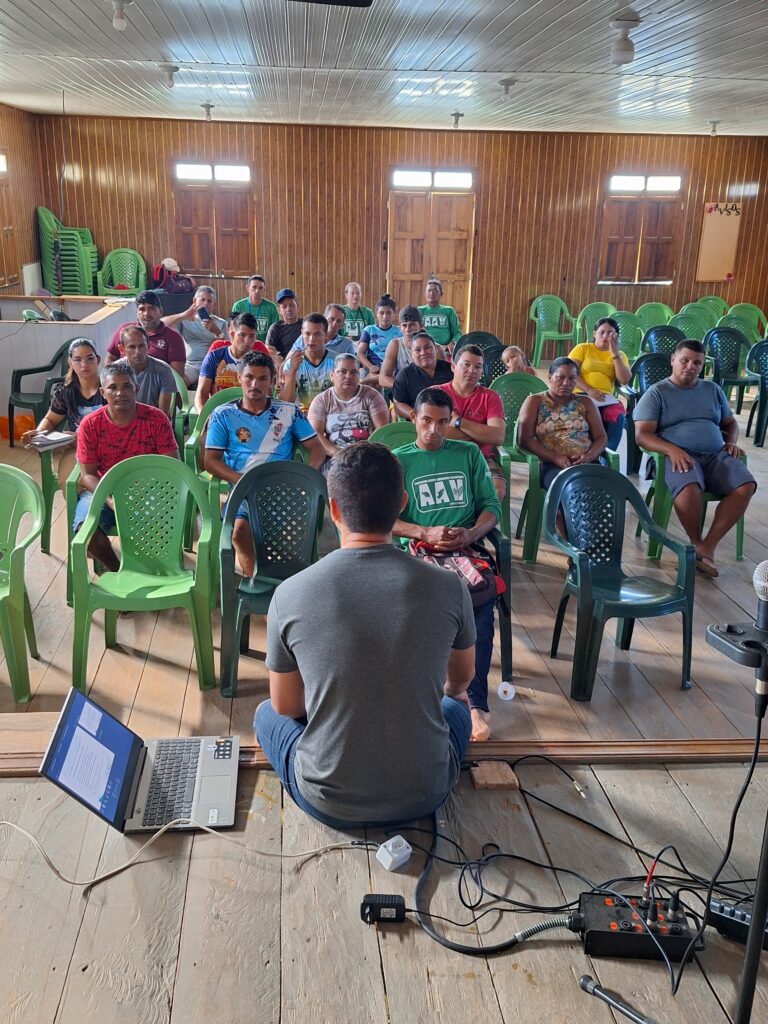
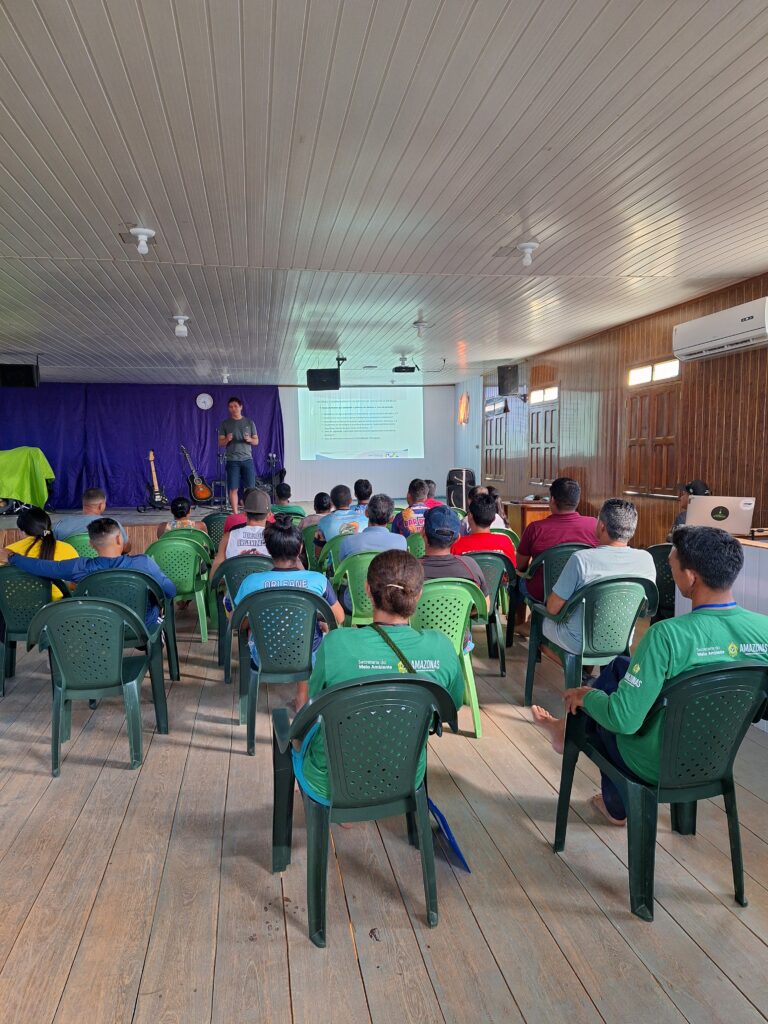
Between July and August 2024, researchers from Instituto Juruá embarked on a 26 days journey to the Fishing Agreement of Tapauá River Mouth, in the Purus River channel. Created by Regulatory Instruction SEMA/AM No. 04, dated August 19, 2020, the fishing agreement is located in the municipality of Tapauá and involves six communities, 421 families, about 300 fishermen, and at least 30 aquatic environments mapped and categorized for subsistence and commercial fishing, in addition to conservation areas. Fishing is the most important activity of the region, being the main source of livelihood and income for the majority of families.
According to local residents, the Mouth of Tapauá River has being explored by large fishing fleets from Manaus, Iranduba, Lábrea, Manacapuru and its own municipality for 30 years. These boats targeted migratory species, such as Prochilodus, Piaractus mesopotamicus and Brycon but also heavily exploited species like Colossoma macropomum and Arapaima leading to the near disappearance of these species in the region. In addition to fishing pressure, these fleets brought issues, such as violence, alcoholism and drug traffic to the communities. Up to 60 boats per day were registered moored at a single community port.
In light of the worsening of the situation, the fish stocks declined and restrictions of local fishing, the residents supported by the Pastoral Land Commission and the Parish of the Catholic Church, initiated the process to create the Fishing Agreement, in 2018. The goal was to minimize conflicts and establish rules to enable the recovery of local fishing stocks. Four years after the agreement approval, the residents reported a significant reduction of fishing conflicts, the withdrawal of commercial fleets from the region and the recovery of stocks, with frequent sightings of arapaima in the river and lakes.
The Association of the Community Members of the Tapauá River Mouth Fisheries Agreement (ACCAP) was founded in 2023, with the goal of strengthening territorial surveillance and developing alternatives for the sustainable use of local resources. Recently, influenced by the indigenous group Paumari das Terras from Paricá Lake, residents have initiated the process of implementation of arapaima management. However, this process faces two main challenges. The first is the need to update the agreement to include new areas and communities. Instituto Juruá, in partnership with ACCAP, held community meetings to guide the residents and map new aquatic environments and explain the legal procedures to make the review of the Fishing Agreement.
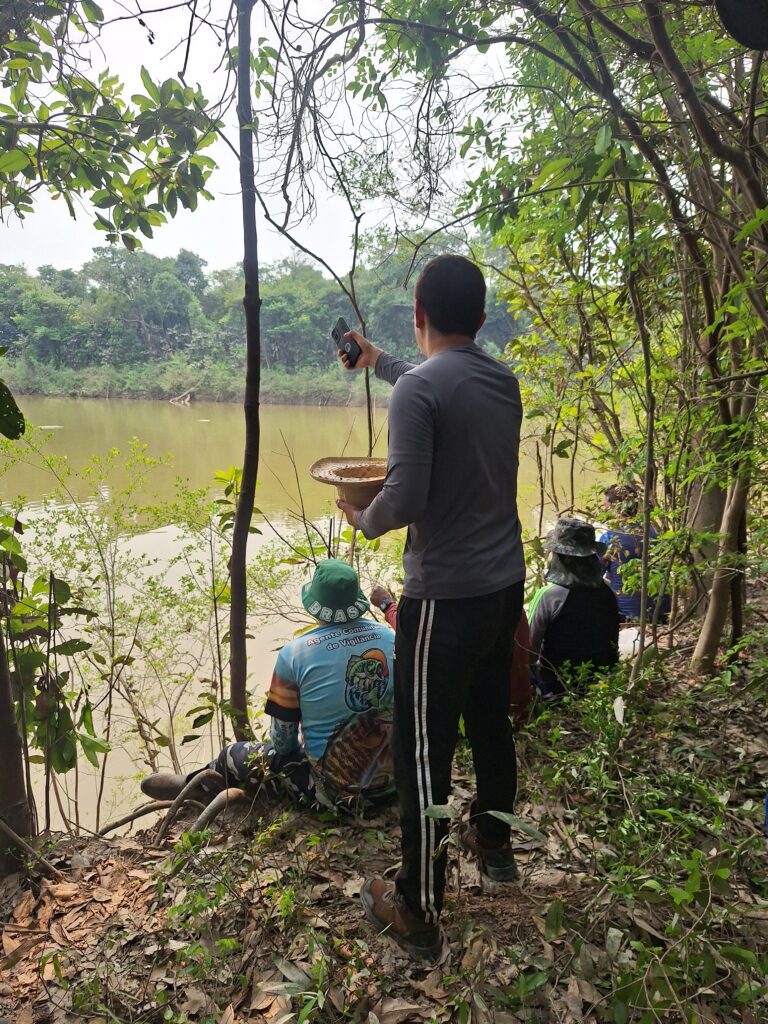
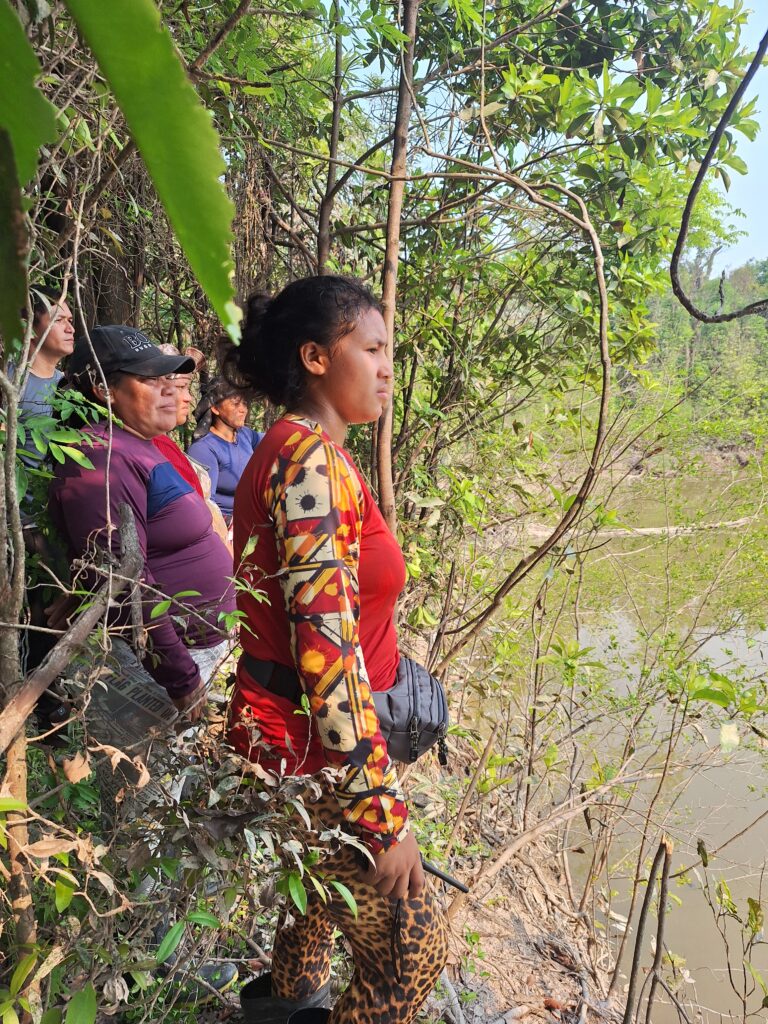
The second challenge is the lack of professional arapaima counters, whose proper counting is essential for sustainable management. To face this challenge, Instituto Juruá in partnership with ACCAP, promoted training about methodology of counting and monitoring tools to arapaima. The meetings took place between July 29th and 30th, 2024, and were divided into two stages: a theoretical one, held in the Foz do Tapauá Community, and a practical one, held at the Ponta Isabel Community lake. The goal was to demonstrate the importance of counting for management and encourage the interest in professional certification. In total, 24 residents (8 women and 16 men) participated in the training. Instituto Juruá has also been seeking to strengthen the partnership between the Paumari people and the residents of the Fishing Agreement in order to exchange experiences on management and support the indigenous people in future counts in the lakes of the Agreement, bearing in mind that the Paumari people are a benchmark in the social organization of fishing and have experienced professional counters who can contribute to the process of training new counters and implementing arapaima management in the Foz do Rio Tapauá Fishing Agreement.
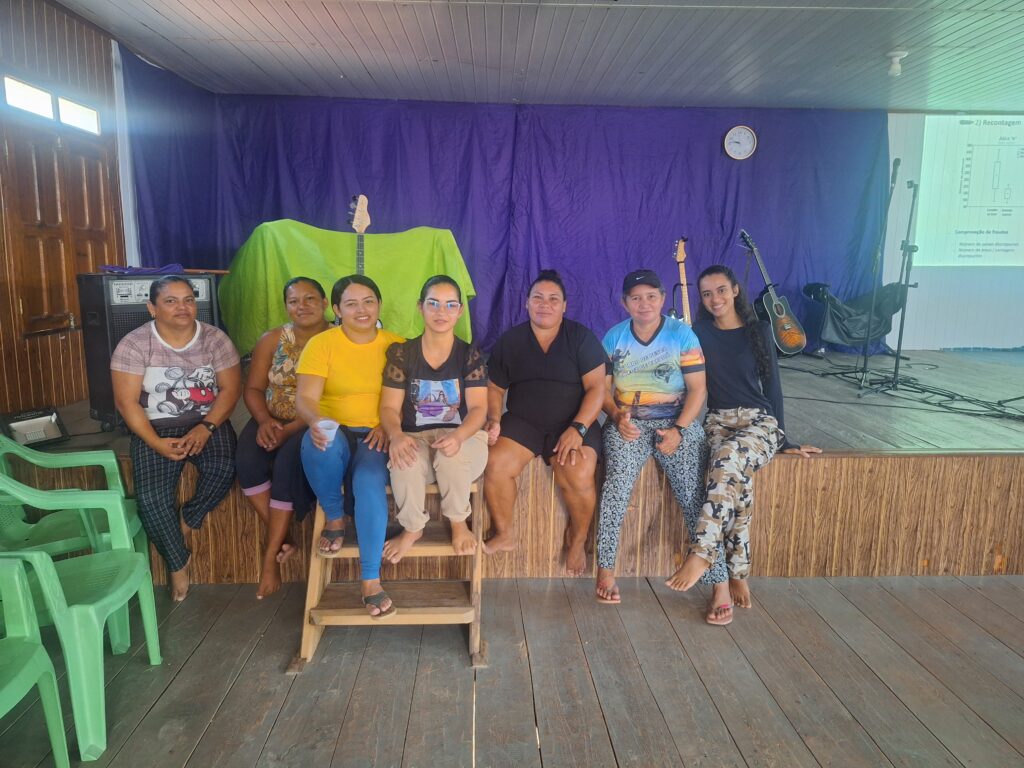
Instituto Juruá believes that the experience of the residents of the Foz do Tapauá Fishing Agreement is fundamental to the construction of a monitoring protocol that reflects the diversity of fishing realities in the Amazon. In addition, support for community organizations is essential for the conservation and maintenance of traditional peoples’ ways of life.

